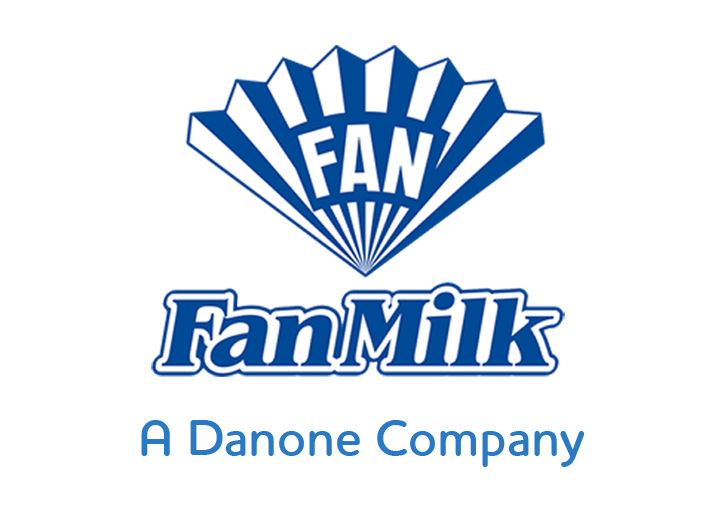

EXCERPTS FROM AN EPIC JOURNEY
THROWING BACK TO WHAT WE BUILD ON TODAY
FanMilk was started by a Danish entrepreneur with some other investors in Ghana as Ghana Cold Store in 1959. It was renamed Ghana Milk Company in 1960 with the primary aim of producing and distributing fresh milk-based products. The need for quality logistics sourcing gave birth to the partnership between Danish sourcing and trading company, Emidan, which started as a supplier to dairy factories in Ghana in 1960 and later in other parts of West Africa. Vendors were employed to distribute to schools, shops, department stores, homes, hospitals etc using container-carrying bicycles popularly known as the ‘Long John Bicycles’. Business couldn’t flourish by then but was just fair enough to support bank loans to keep the company in operation since the consumption of fresh milk was not common among Ghanaians.
THE BIRTH OF FANMILK
As part of the company’s new direction, a unique corporate logo was introduced. It was created by a Dane, Viggo Arentoft, who was inspired by the symbolism attached to the oriental fan, a cooling tool.
Subsequently, in a General Meeting on 26th March, 1962, a special resolution was passed to change the name of the company to Fan Milk Limited while considering more sophisticated use of milk in its operations, thus production of flavoured milk products.
In a space of eighteen months, the company experienced a quick turnaround in its economic operations and a fleet of new bicycles and equipment were acquired to support the growth of the business.
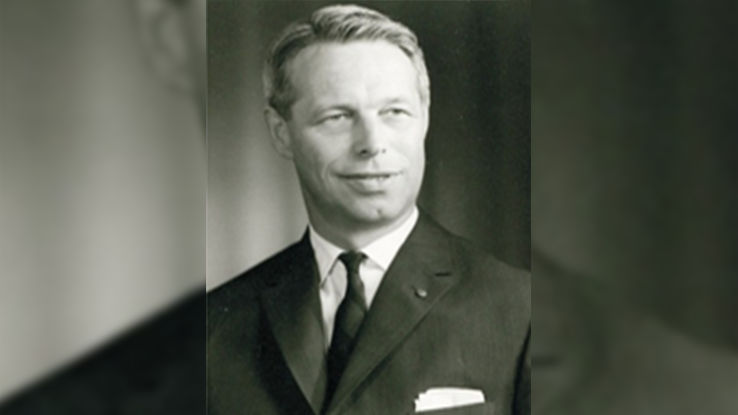
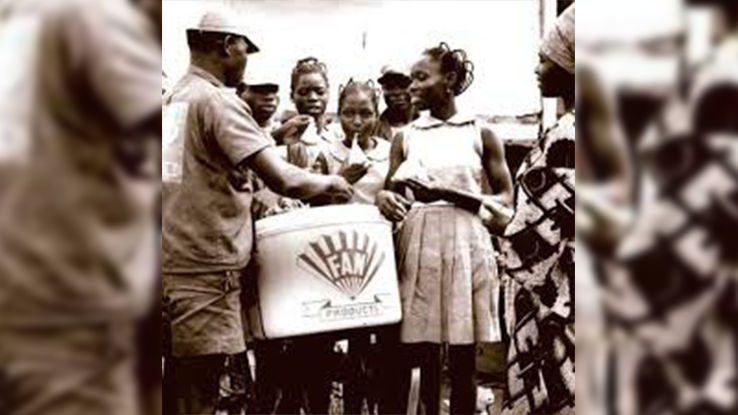
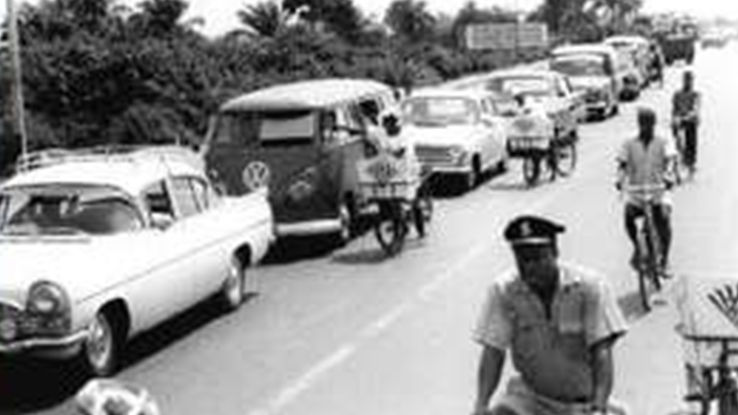

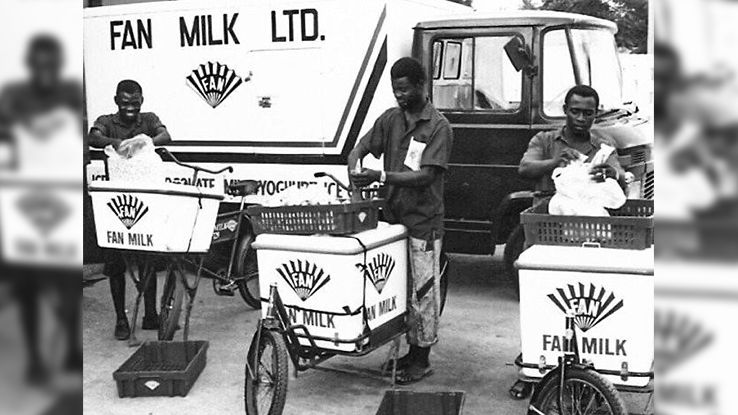

FANMILK ARRIVES IN NIGERIA
As part of the company’s plan to touch more lives through the production and distribution of dairy based products, the Fan Milk PLC was inaugurated in 1963 with a recombination-plant at Ibadan, a distribution centre in Lagos and with less than 30 employees at the time. Fan Milk PLC expanded over time to impact the population of the country with its healthy and nutritious milk-based products and created more job opportunities to enhance the livelihoods of most Nigerians.
The plant produced fresh milk from imported milk powder to serve a range of white milk, chocolate milk, cottage cheese and set yoghurts. Products were distributed to consumers through vendors who rode on the Long John Bicycles and other smaller depots.
Fan Milk PLC evolved and introduced yoghurt drinks, ice lollies and ice creams in the 1970’s which became very popular in the market and generated the financial strength to set up further depots and, in 1981, a second recombination plant in Kano was inaugurated.

FANMILK INTERNATIONAL GROUP IS SETUP
In 1969, the shareholders passed a resolution to convert the company to a public limited liability company hence increased authorized shares from 30,000 to 470,000. FanMilk International was setup to oversee all business affairs and international business operations and had its headquarters in Denmark.

FRANCOPHONE MARKET RECEIVES FANMILK
FanMilk International Group driven by the desire to serve and touch many lives in Africa as possible, expanded to hit the African Francophone Markets with production plants stationed in three French countries. They acquired Finamark in La Cote D’Ivoire which was then managed by a Danish entrepreneur named Erik Bosteen. Finamark was also a producer of quality ice cream and distribution in Cote D’Ivoire and Burkina Faso. Popular among its products was Star Ice Cream.
Togo also received a FanMilk production plant in Lomé which produced and distributed in Togo and some parts of Benin.

2013 – 2016
A CHANGE IN GOVERNANCE
In 2013, FanMilk International was acquired by Dubai’s investment group ABRAAJ with 100% ownership of FanMilk. ABRAAJ subsequently sold 48% of its shares to the international dairy group DANONE.

THE ONE PLANET, ONE HEALTH VISION
Danone became a majority shareholder of FanMilk International in 2016 with 52% ownership. By 2019, Danone had attained full ownership of FanMilk International hence the integration of FanMilk into the One Planet, One Health Vision to foster the creation of a healthy and sustainable ecosystem through the development of purposeful brands or manifesto brands to impact the health of people locally and the planet as a whole.

